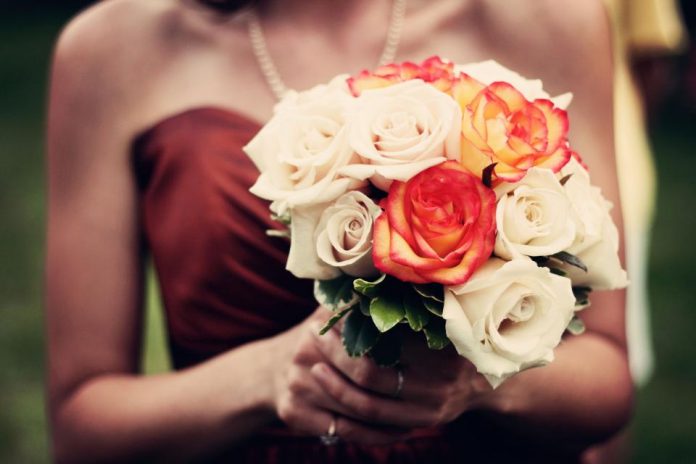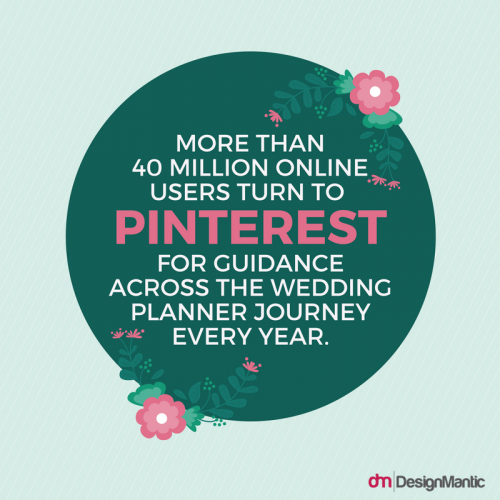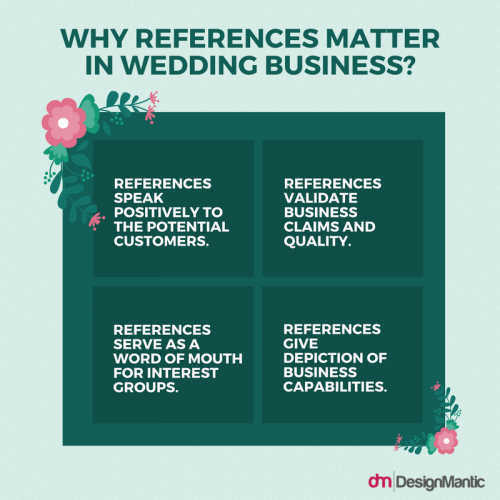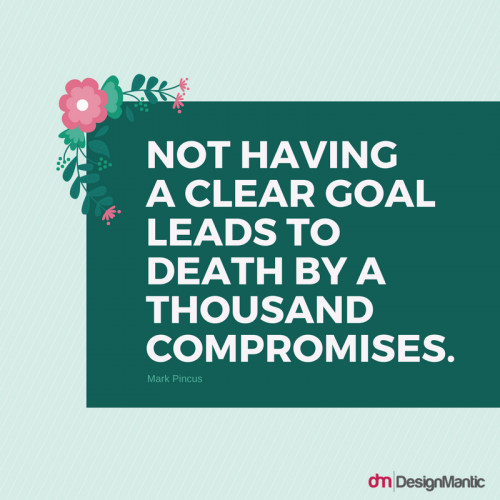A myriad of details dot the couple’s path between the “she said yes”, and “I do!” As soon as the newly engaged couple stops swooning with the initial bouts of exultation, the realization of the mammoth and lumbering task looming ahead of them, dawns over: planning a wedding from scratch! Everything from booking the florist, sprinting from bride and groom salon to salon to select the most eye-grabbing ensembles, making sure of the availability of their favorite venue and band, to contending with food and wine tasting, the bride and groom soon get overwhelmed trying to run after vendors that they are entrusting the most precious day of their lives to. This is why, more and more couples these days are relying on wedding planners to help them execute their wedding dreams to perfection, while alleviating them of all the hassle.
If you are planning to kick-start your own wedding planning business, here are the 8 top things you must certainly avoid if you don’t want your business to run afoul of couples to be!
1. NOT HAVING AN IMPRESSIVE WEDDING PORTFOLIO
A picture speaks a thousand words! A hundred … well you do the math. Other than the obvious word of mouth, one of the most viable ways of selling your services as a wedding planning authority is through putting together a viable online portfolio that portrays your expertise and lets your excited couple sneak a peak in to the types of services you offer and your éclat in your niche.
Source: QC Event School
Here are a few ideas on what to include:
- A stunning photo shoot of a mock wedding; including the cake, the band, the sumptuous décor of the reception, the floral fiesta, the reception table, and the couple having the time of their life. This is a great opportunity to flaunt your attention to detail and grasp of the hottest wedding trends. Leverage your photo-shoot to build relationships with local vendors, by offering to give them referrals if they contribute to your mock wedding.
- A list of your professional memberships or certifications.
- Samples of wedding timelines created by you.
- Photographs and written testimonials from relatives and friends’ weddings to which you have contributed.
2. NOT ESTABLISHING AMIABLE RELATIONS
Wedding planners are in charge of ensuring that all aspects of the wedding run smoothly without a snag. If the wedding cake is lopsided, you have to work a spell upon it before the bridezilla notices. If the flowers do not arrive in good condition or on time, it falls upon you to fix the dilemma. In order to sidestep such potential hitches, it is indispensable to establish working relationships with reliable vendors, who are trusted by other wedding planners for providing a good service or product, for the right price, and on time. In order to cater to brides with different budgets, try recruiting vendors in myriad price ranges.
Investing your energy and time into cultivating cordial relationships with other wedding vendors and professionals in your vicinity is worth the effort. Not only would it help you gain a sense of which vendors are reputable, professional, and worth their salt when referring to your clients, you will also get a chance to create referral sources for new business. For instance, joining your local chapters of the International Special Events Society and the National Association of Catering Executives, puts you in direct contact with officiants, florists, videographers, photographers, caterers, venue owners, and more. Most wedding professionals are keen to know more about other service providers in their area and build their networks.
3. NOT DEVELOPING A COMPANY IMAGE
Style is the new vogue in wedding planning. In essence, brides are putting their trust in your ideas to realize their fairy-tale wedding dreams. However, with the plethora of wedding planners dotting the wedding industry, how does a planner stand out and make an impression even before a couple has stepped over their doors?
Therefore, building the right business image, from the wedding logo and name of the business, to the fonts and colors you are planning to capitalize on in your marketing, must demonstrate attention to detail and a penchant for style. While most wedding planning businesses design their logos almost as an afterthought, they fail to realize the importance of putting a face to their company name to make sure that their business is etched upon the minds of the aspiring couples, shopping for wedding planners.

In addition, flyers and brochures go a long way in marketing your services. As part of your branding foray, try to exhibit at trade shows targeted to brides. Having a smartly designed website can also contribute to your success as 79% of people 19 to 28 years old shop around on the internet, and considering the average age of the bride as falling around 26 years old, most couples feel more comfortable perusing portfolios and websites of wedding planners at home, before deciding to pay them a visit.
4. LACK OF COMMUNICATION
Poor communication with your clients spells failure for you from the start. Your clients come to you harboring certain expectations for their big day, and look to you to ensure their execution. Therefore, it is vital that you are both on the same page to avert disaster. Remember, the exultation and contentment of your clients dictate whether the wedding day was successful or not.
The key to great communication lies in listening to your clients actively. Listening to the happy prattling of the thrilled couple entails more than hearing the words coming out of their mouths. The best wedding planners use their perception and intuition to read between the lines, as clients are notorious for leaving out details, forgetting to elucidate certain fancies, or worse still, having flighty whims. Observe closely the body language of your clients. For instance, if their eyes light up when discussing about hiring a particular caterer, you can hazard a guess that food is a priority for them.
Also keep your ears perked up for any areas your client avoids talking about or overemphasizes. Does your client keep changing the subject every time you bring up the guest list or keep stressing the budget restrictions? Delve into any mixed or hazy messages to ensure that the expectations of your clients are crystal-clear.
It’s imperative to incessantly check-in with your client as you progress through the planning phase, to ensure that everything comes out perfectly together. Wedding planners are not seers or mind-readers, and clients are often infamous for changing their minds and simply “forgetting” to fill you in. Before purchasing or booking anything for the event, check with the client if you are headed in the right direction.
5. HAVING NO BACK UP PLANS
As a planner, Murphy’s Law should be your right arm: “Anything that can go wrong, will go wrong.” All the planning and preparation in the world cannot garner you a flawless event. If nature decides to rain on your parade (literally), it will rain even though the weather man promised a bright, sunny day for an outdoor wedding. No matter how arduously your famous band has pledged to make it to your wedding, the lead singer can come down with a terrible case of cold. It’s good to hope for the best, but also important to prepare for the worst. Lest things go awfully and disastrously wrong, having a plan “B” can help you save the wedding (and your nose).
Risk assessment should be a vital part of your planning process. Identify potential risks that can plague your wedding event and come up with a viable contingency plan for each conceivable glitch. Have a store of emergency vendors at the ready who can act quickly and provide a similar service/product to that you have booked. Even have a stand-by person to take on MC duties, lest the planned MC is late or sick. When planning an outdoor soiree, leave some room in the budget for an emergency tent or an indoor space available promptly.
6. NOT LEVERAGING FREE MARKETING OPPORTUNITIES
Most small wedding businesses spend a considerable amount of their time marketing their company and manifesting their presence in the sea of planners. Luckily, this critical task doesn’t have to be time-consuming or expensive. In addition to designing a stunning website that depicts and flaunts your expertise, create social media business pages to share photos from the weddings you’ve helped plan, your current developments, plans, ideas, as well as the latest wedding statistics and trends.
Also, considering the fad of themed weddings, creating inspiration boards through Pinterest helps enormously as Pinterest is the Makah for couples planning details of their wedding. In addition to free marketing opportunities, there are more traditional marketing avenues, such as networking and paid advertising in print media. Your goal is to appeal to engaged couples and show them how you can make their wedding dreams come true.
7. NOT BEING ABLE TO PRODUCE REFERENCES AND EXPERIENCES
It is highly unlikely that any harried bride would hire a wedding planning business that fails to show a wedding-related business experience. Why risk the most important day of their life? Gain experience by working for a caterer, florist, a bridal shop, or any other established wedding planning company to get a know-how of the wedding business and be seen as an authority on matrimony.
Another alternative is to plan the weddings of a few friends pro-bono to provide you with references, and gain ample experiences. Capture good photographs for your online wedding portfolio to show potential clients what you can accomplish.
8. POOR BUSINESS ORGANIZATION
A disorganized business restricts a professional’s ability to grow their business, impacts quality of work, and leads to poor customer experience. Inconsistently communicating with clients, struggling to prioritize planning between multiple events, or forgetting to schedule a consultation or respond to inquiries, are some examples of what ensues when a wedding planner doesn’t manage his or her business effectively.
Through planning tools and software, you can stay organized and ensure that your clients are served with the best experience. Such technology-enabled solutions can help you grow and manage your business.
Find a Home-Based Business to Start-Up >>> Hundreds of Business Listings.























































